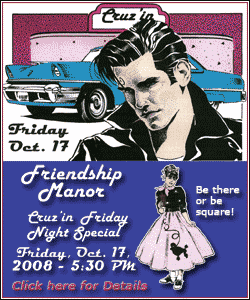|
Self-taught artist James Castle exhibit in Philly
 Send a link to a friend
Send a link to a friend
[October 18, 2008]
PHILADELPHIA (AP) --
The nature of "outsider" art may be debatable, but self-taught artist James Castle was an outsider of sorts from the day he was born.
Castle, subject of a new exhibit organized by the Philadelphia Museum of Art, was born profoundly deaf and never learned to read, write, sign or speak. But he spoke volumes through art, which he created ceaselessly from early childhood until his death in 1977 at age 77.
|
|
 "James Castle: A Retrospective," which opened this week and remains on display through Jan. 4, brings together more than 300 evocative drawings, handmade books, collages and sculptural pieces from 60 public and private collections. The first comprehensive museum exhibition of Castle, it will travel to Chicago and San Francisco in 2009. "James Castle: A Retrospective," which opened this week and remains on display through Jan. 4, brings together more than 300 evocative drawings, handmade books, collages and sculptural pieces from 60 public and private collections. The first comprehensive museum exhibition of Castle, it will travel to Chicago and San Francisco in 2009.
An hourlong documentary, developed in tandem with the exhibit, tells Castle's story through his family, artists, historians and others.
"In comparison to other self-taught artists, he has this wide range of work
- it goes into quite conceptual stuff," curator Ann Percy said.
The exhibition shows a rich body of work that transcends what is commonly referred to as outsider art, a term often used to describe self-taught artists with physical or mental illness.
Born in Garden Valley, Idaho, Castle attended a school for the deaf for five years but resisted his instructors' efforts and was sent home at about age 15. Encouraged by his family, who describe him as gregarious and highly inquisitive, Castle took to making art inspired by the people and places of his past and present.

Other than occasional use of crayon and chalk, Castle preferred making his own ink of stove soot and saliva. His pens and brushes were sharpened sticks and wads of fabric. His color washes came from laundry bluing, makeup and crepe paper soaked in water. His canvas was scrap paper or cardboard, available in unending supply and variety from his family's general store and post office.
With those rudimentary art supplies, he developed expert technique and masterful composition and perspective, Percy said.
"He is tremendously skilled with these simple materials," she said. "He was given paint and brushes but he preferred materials with a history."
Many of Castle's soot-and-spit drawings depict his familiar Idaho farmscapes, but his entire body of work is broadly varied in style and subject matter. It also has elements used by many well-known 20th-century artists.
His themes include surrealistic portraits of human figures with chairs or animals as heads, hand-stitched books, collages and three-dimensional abstract assemblages of complex shapes torn and stitched onto contrasting backgrounds.
[to top of second column] |
 "All these devices are right with what's happening in the 20th century," Percy said, "but presumably he's doing it himself, with no knowledge of the professional art world."
Among the most striking are drawings of product packaging arranged in grids, logos in kaleidoscopic repetition, codelike "calendars" of Roman, Greek and Cyrillic letters, and text copied from newspaper headlines.
The Pop Art association is unavoidable in pieces such as "SLASHING ALL PRICES," "SHORT RIBS" and "Last Call!" Their sophistication have led scholars to question whether Castle, unbeknownst to his family, knew some words.
"How do you make these pictures without knowing what the words mean? Nobody can quite crack the dilemma of what's going on here," Percy said. "No one knows what he was up to
- or will."
There is humor, contemplation, wistfulness, joy and a sense of freedom in Castle's work, which was shown (to his great delight) at regional art galleries in the 1950s and 1960s but began attracting national attention only a decade ago, Percy said.
"Whatever he was doing," she said, "he was doing it before a lot of the people we know."
---
On the Net:
http://www.philamuseum.org
[Associated
Press; By JOANN LOVIGLIO]
Copyright 2008 The Associated
Press. All rights reserved. This material may not be published,
broadcast, rewritten or redistributed.
 |